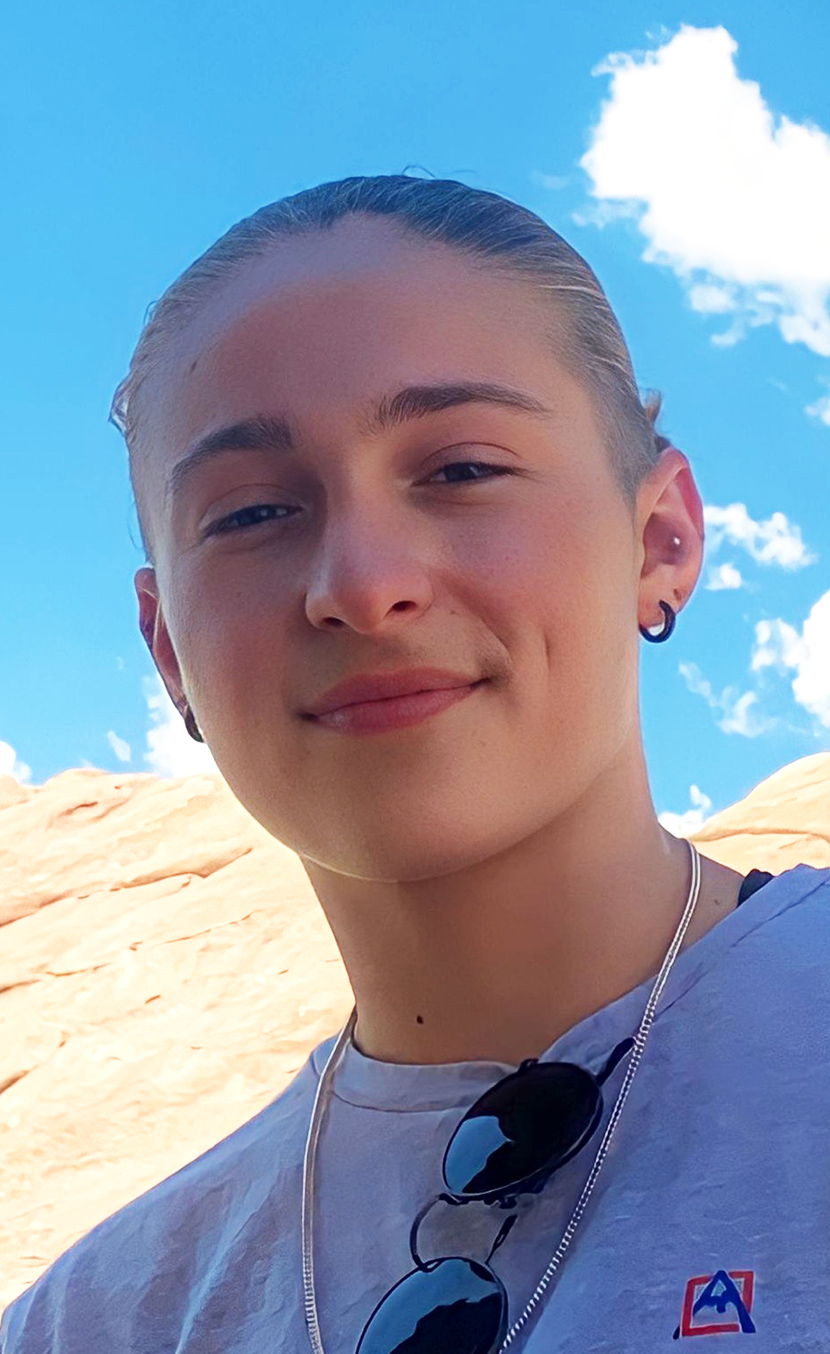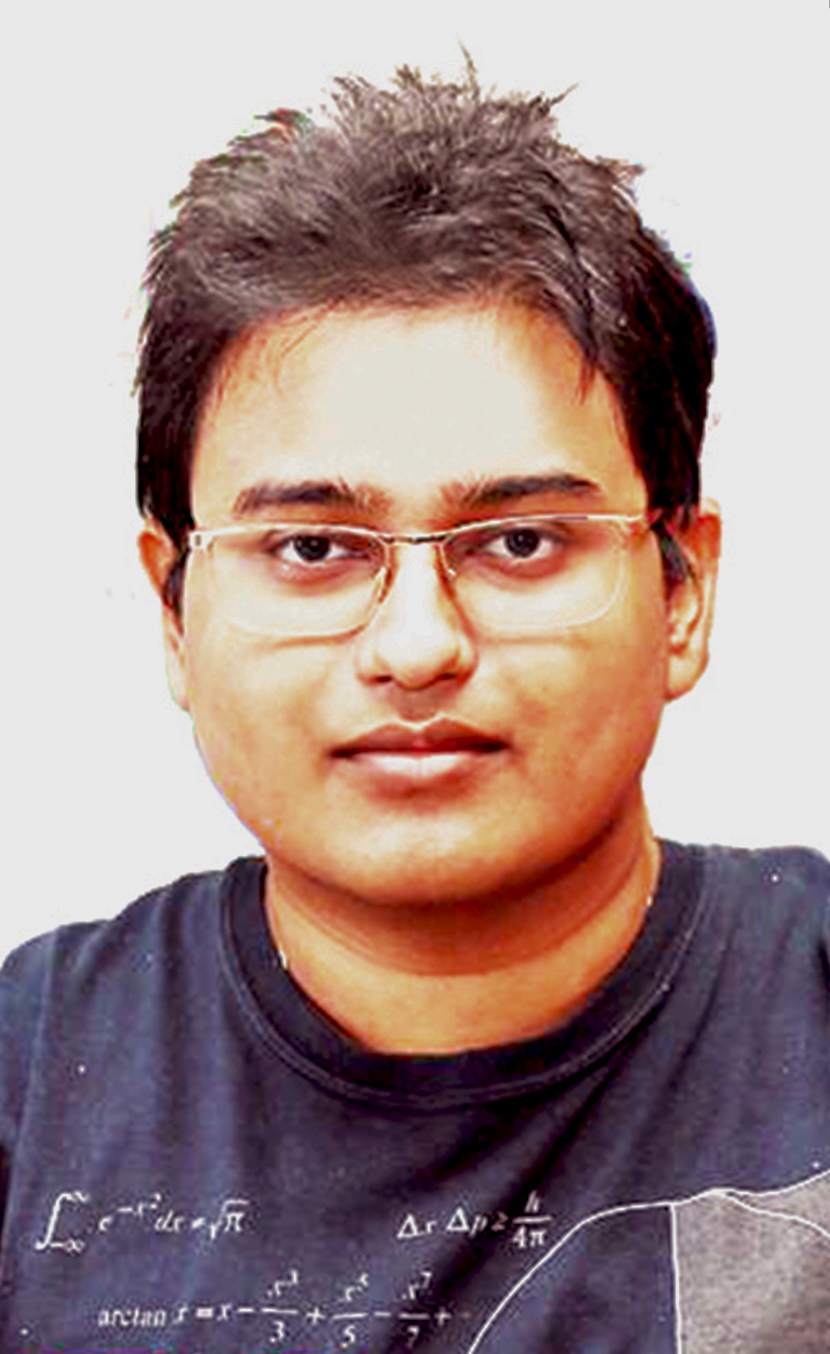
January 7, 2025, Mountain View, CA -- The SETI Institute announces the 2024 SETI Forward Award recipients: Gabriella Rizzo and Pritvik Sinhadc. This year's recipients worked on research projects to understand extremophiles in deep-sea hydrothermal vents and to analyze gravitational wave signals for potential extraterrestrial technosignatures. Established by Lew Levy, SETI Forward committee founder and member of the SETI Institute’s Council of Advisors, this award is a beacon for promising young scientists. The goal is to connect students with opportunities that foster their passion for SETI and astrobiology, guiding them toward meaningful careers.
“In our 6th year of SETI Forward, I am continually impressed with the amazing students entering the scientific community,” said Levy. “SETI Forward recognizes undergraduates such as Gabriella and Pritvik who want to join the search for life outside of Earth, and I have no doubt they will join the growing SETI community.”

Gabriella Rizzo: Life at the Limits
Gabriella, currently a first-year PhD student in the Genetics, Cellular and Molecular Biology program at the University of Nebraska-Lincoln in Dr. Karrie Weber's lab, conducted her research at the University of Massachusetts Amherst under the direction of Dr. James Holden as an undergraduate.
Gabriella’s research explored how life can survive in extreme environments like deep-sea hydrothermal vents. The study discovered a new microbe called strain Ax23, a heat-loving organism that produces methane. Found in a Pacific Ocean vent, it thrives at 149°F (65°C), using hydrogen and carbon dioxide for energy. This microbe's survival in such harsh conditions suggests that similar life forms might exist in hydrothermal environments on other worlds, like Europa or Enceladus.
“Astrobiology is inherently an interdisciplinary science—a synthesis of geomicrobiology, physics, chemistry, and astronomy,” said Gabriella. “This breadth allows me the unique and rare opportunity to approach my research questions from many perspectives. Through astrobiology, I have honed my ability to bridge disciplines, distill complex ideas, and collaborate seamlessly across varied scientific backgrounds. These skills position me to lead future projects that address fundamental questions about the nature and existence of life in the universe.”

Pritvik Sinhadc: Decoding the Cosmos
Pritvik is currently pursuing a Bachelor of Science degree with a Major in Physics and a Minor in Astrophysics at the California Institute of Technology (Caltech) and conducted his research at Caltech under the mentorship of Dr. Yuk L. Yung and Dr. Stuart Bartlett.
Pritvik’s project introduced a new way to search for signs of alien technology by studying gravitational waves (GWs), ripples in space caused by massive cosmic events. Using Complexity Theory, a tool for measuring patterns and unpredictability, his research looks for unusual signals in GWs that might point to advanced alien civilizations. This approach differs from traditional methods that focus on detecting radio signals or signs of life as we know it. Instead, it uses universal patterns that could work for any intelligent life, no matter how different it is from us. If successful, this research could change how we search for life in the universe and help answer the question: Are we alone?
“This project has been an extraordinary journey, allowing me to merge my passions for astrophysics, GW physics, and astrobiology,” said Pritvik. “Exploring the unknown and pushing the boundaries of science drive me, and I am honored to receive the SETI Forward Award. This recognition is not just an acknowledgment of my work but a catalyst for my aspirations to redefine how we search for extraterrestrial intelligence by integrating GW physics with Complexity Theory, offering a universal and inclusive approach to identifying technosignatures. I hope to contribute to a future where humanity understands its place in the cosmos and explores life as we don't know it. As I advance in my academic and professional journey, I aspire to bridge theoretical physics, astrophysics, and astrobiology, strengthening my resolve to continue asking big questions about life in the universe."
The SETI Forward award, conceived through Lew Levy's collaboration with SETI Institute trustee Dane Glasgow, aims to bridge the gap between undergraduate internships, graduate school, and careers. By providing stipends for research collaborations or conference participation, SETI Forward empowers young scientists to continue their exploration of cosmic mysteries.
The diverse panel overseeing the SETI Forward Fund administration selected this year's recipients. Undergraduates at accepted institutions participating in mentored internships are eligible to apply.
Gabriella Rizzo and Pritvik Sinhadc will be officially honored at the next Drake Awards event in May 2025.
About the SETI Institute
Founded in 1984, the SETI Institute is a non-profit, multi-disciplinary research and education organization whose mission is to lead humanity's quest to understand the origins and prevalence of life and intelligence in the universe and to share that knowledge with the world. Our research encompasses the physical and biological sciences and leverages expertise in data analytics, machine learning and advanced signal detection technologies. The SETI Institute is a distinguished research partner for industry, academia and government agencies, including NASA and NSF.
Contact information
Rebecca McDonald
Director of Communications
SETI Institute
rmcdonald@seti.org
DOWNLOAD FULL PRESS RELEASE





